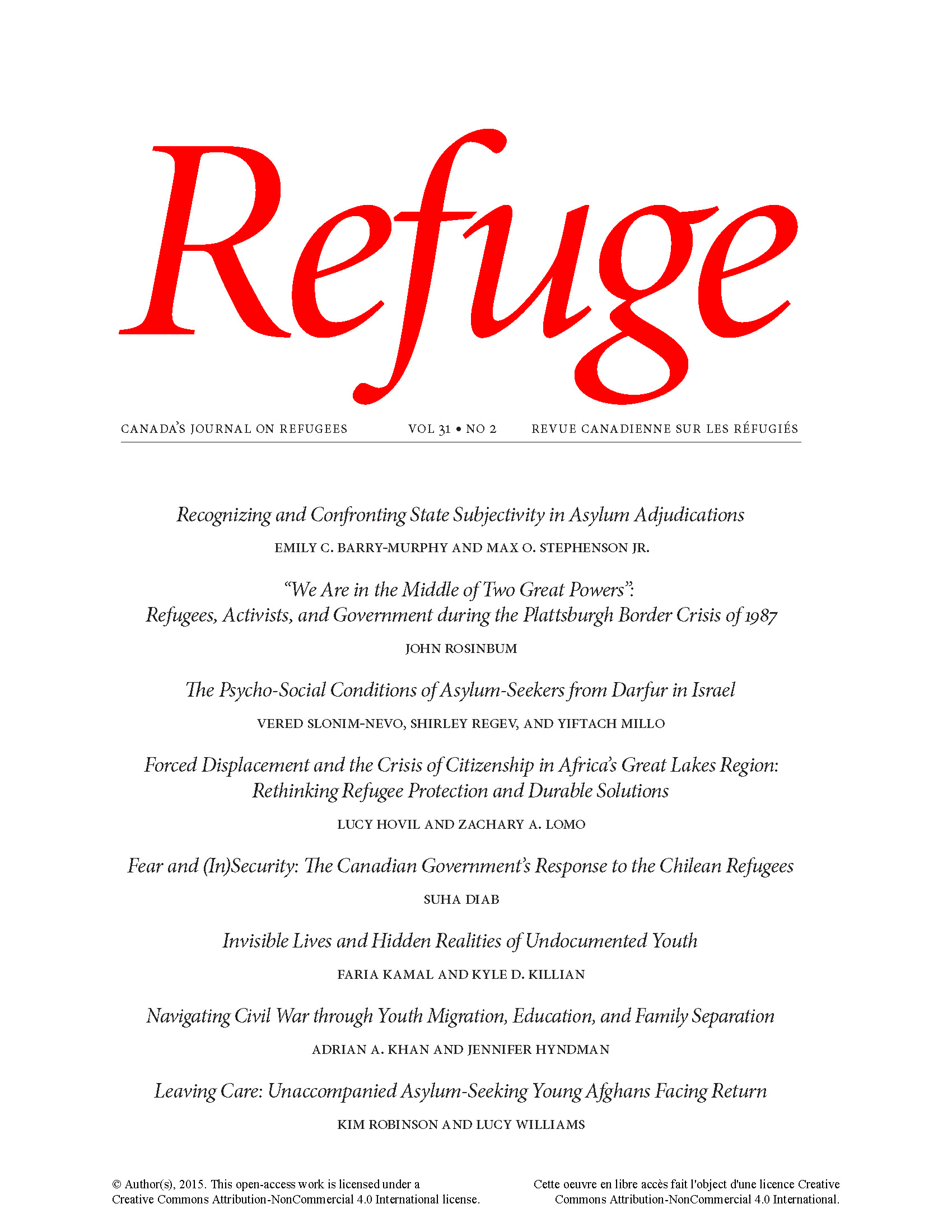Navigating Civil War through Youth Migration, Education, and Family Separation
DOI:
https://doi.org/10.25071/1920-7336.40311Keywords:
Nepal, Himalayan region, People's War, civil war, youth migration, family separation, internal migration, children's geographiesAbstract
Why did youth move from their trans-Himalayan villages at very young ages to attend school with the risk of prolonged family separation? An in-depth study of youth from rural trans-Himalayan villages who travelled to Kathmandu, capital of Nepal, to live and study at a (free) boarding school, funded by both national and international donors, provides a starting point to address this question. The “People’s War” from 1996 to 2006 in Nepal contextualizes the study, given that the Maoist insurgency in the Himalayan hinterland aimed to recruit youth to the rebel cause. The study of youth from the trans-Himalayan region living at the boarding school as students was conducted between April and July 2014 in Kathmandu. The youth arrived at the school between the ages of four and ten years, and did not see their families for several years after their arrival, given the significant distances between their villages and the associated costs of travel. Drawing on scholarship in children’s geographies, the narratives of these youth are employed to underscore their agency in these biographies of migration and better understand these difficult separations during political uncertainty and civil war.
Metrics
Downloads
Published
How to Cite
Issue
Section
License
Copyright (c) 2015 Adrian A. Khan, Jennifer Hyndman

This work is licensed under a Creative Commons Attribution-NonCommercial 4.0 International License.
Refuge authors retain the copyright over their work, and license it to the general public under the Creative Commons Attribution-Non Commercial License International (CC BY-NC 4.0). This license allows for non-commercial use, reproduction and adaption of the material in any medium or format, with proper attribution. For general information on Creative Commons licences, visit the Creative Commons site. For the CC BY-NC 4.0 license, review the human readable summary.







